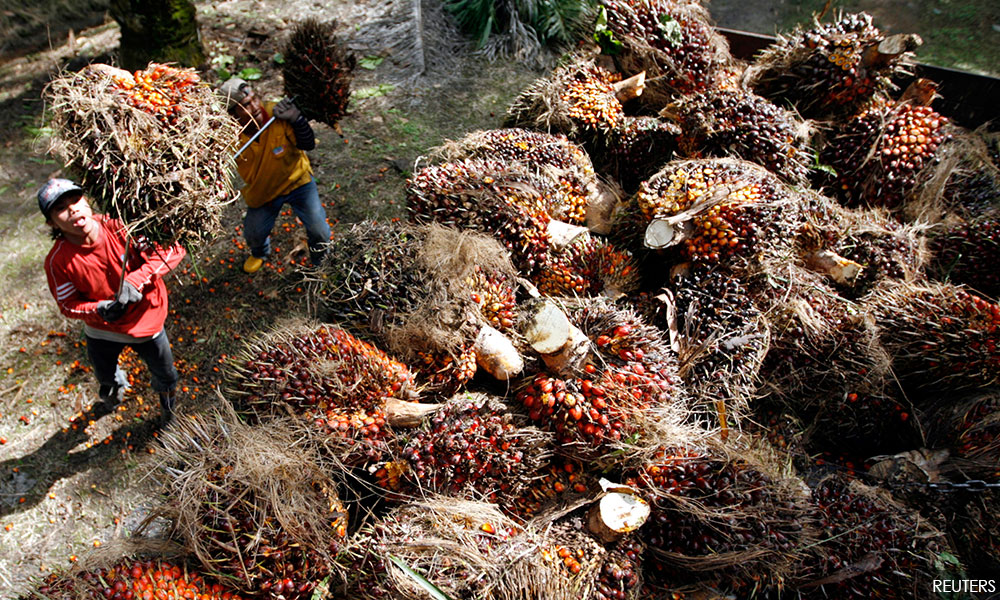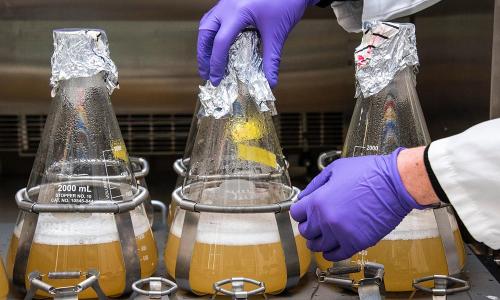M'sia not threatened by Bill Gate's synthetic palm oil project
Malaysia does not see the production of synthetic palm oil by US start-up company, C16 Biosciences, as a threat to natural palm oil supply chain particularly when produced under the best agricultural practices and sustainability standards.
In fact, the world's second largest palm oil producer wishes the best to the company, the investment arm of Bill Gates-led Breakthrough Energy Ventures, in its endeavours and will even be prepared to work with them if they desire.
“There are so many other intrinsic difficulties that will come with trying to copy nature’s palm oil.
“For example, the intricacies and complexities of nature’s triglyceride species patched to a glycerol molecule and present in palm oil through varied configurations can hardly be fully duplicated by current technologies."
These statements were contained in an article written by the Plantation Industries and Commodities Minister Mohd Khairuddin Aman Razali and Malaysian Palm Oil Council chief executive officer Kalyana Sundram to Euractiv, an independent pan-European media network specialised in European Union (EU) policies.
Both of them agreed that nature seemed to be the sole patent holder for successful permutation of such molecular triglyceride species.
The C16 Biosciences synthetic palm oil project received US$20 million (RM88 million) fund from the Microsoft Corporation co-founder.
Mohd Khairuddin and Sundram said C16 Biosciences might actually succeed in generating the core straight chain fatty acid molecules that are the backbone of palm oil and indeed all oils and fats.
But they asked if that was enough, knowing that science can also produce such carbon chain fatty acid molecules from various other processes and means.
“Take the case of saturated fats and human blood cholesterol response. American lipid specialists pushed the idea that saturated stearic acid was cholesterol neutral whereas palmitic acid found in palm oil was cholesterol elevating.
“They went ahead and created an artificial, fully saturated tri-stearic triglyceride through process technologies. The truth is that nature and human metabolism hardly tolerated too many of such molecules,” they explained.
They said the likes of C16 Biosciences should nevertheless be credited for thinking out of the box, but do not necessarily agree that they will generate the global opportunity that could limit the use of natural palm oil.

“Even if they succeed, given the very large odds stacked against such a technology, their impact upon natural palm oil supply chains will be minimal. The hype created in various Western media around this sounds like another stab wounding aimed at the palm oil industry.
“As a nation, Malaysia has led the scientific entrepreneurship in palm oil with several hundred millions already expanded into various research and development programmes. These have often partnered some of the best research institutes from around the world."
For example, the Malaysian Palm Oil Board's scientists succeeded in the mapping of the oil palm genome and published it in the Nature journal.
“At this stage, when global resources are so limited, we would respectfully like to call upon all parties to seek mutual collaboration for the betterment of humanity, and not to use innovative opportunities as a chance to backstab sustainable palm oil production and its supply chain," they added.
- Bernama
Keep up with the latest information on the outbreak in the country with Malaysiakini's free Covid-19 tracker.
Malaysiakini is providing free access to the most important updates on the coronavirus pandemic. You can find them here.
Help keep independent media alive - subscribe to Malaysiakini.
RM12.50 / month
- Unlimited access to award-winning journalism
- Comment and share your opinions on all our articles
- Gift interesting stories to your friends
- Tax deductable

